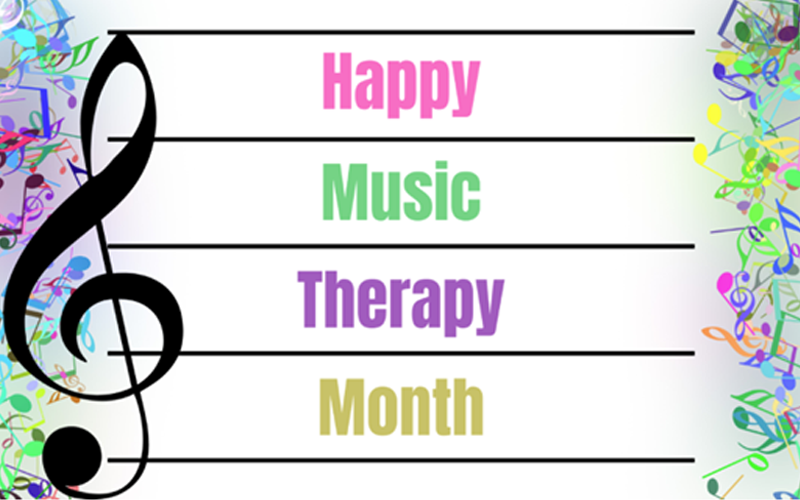Understanding Music Therapy: Exploring its Definition and Advantages
April 7, 2024
Categories: Blog Posts, Healthy Living
Tags: Occupational Therapy
As we look back on Music Therapy Month in March, it's important to shed light on this unique form of therapy. Music therapy uses the power and inspiration of music to create a therapeutic relationship that can help manage several conditions and improve quality of life. It is an evidence-based allied health profession that uses music and live music-based interventions to accomplish therapeutic goals.
In a music therapy session, a music therapist engages in dialogue with individuals, delving into their emotions, needs, music preferences, and experiences to craft sessions tailored uniquely to each patient. These sessions are diverse, ranging from brief 30-minute singing sessions to hour-long sessions involving singing, music reading, and discussions about the significance of the music.
The music therapist – who must complete training from an approved degree program (such as the music therapy program at the University of Georgia) and 1,200 clinical hours to be eligible for board certification and licensure – will create a plan that is tailored to the patient's specific needs.
While music can be very relaxing, music therapy is not just the simple task of listening to music to relax. The essence of clinical music therapy lies in the collaborative relationship between the therapist and the participant, with the therapist leading and orchestrating the session to meet the individual's specific needs. Music therapy can help people of all ages and from all backgrounds. It can improve many aspects of well-being. In the acute care setting, music therapy is often used to support patients with physical, mental, social, and spiritual needs.
How Can Music Therapy Help Me?
In the hospital setting, music therapy interventions may:
- Reduce perception of pain Improve communicative, cognitive, and sensorimotor functions
- Reduce symptoms related to anxiety and depression
- Reduce agitation or hypoactivity related to delirium
- Improve physiological state
- Develop appropriate coping skills
- Provide emotional and/or spiritual support
- Normalize the medical environment
- Provide motivation and alternate attention during painful procedures or therapy sessions
Do I Need to be Musically Talented for Music Therapy?
No! You do not need any previous music history, skills, or talents. Music therapy is available for everyone, no matter their skill level. Those with musical talents are encouraged to communicate their abilities to therapists to ensure sessions align with their skills and preferences.
Risks and Benefits of Music Therapy
While music therapy has minimal risks, it's important to acknowledge the potential for music to evoke painful memories in some individuals. However, in most cases, the benefits far outweigh the risks, as music therapy has been shown to reduce anxiety and depression, alleviate stress, regulate mood, enhance communication skills, boost self-confidence, foster healthy coping mechanisms, sharpen problem-solving abilities, alleviate perceived pain levels, improve physical coordination, motor functions, and movement, ultimately enhancing overall quality of life.
Is music therapy available at St. Mary’s?
Yes. St. Mary’s Hospital in Athens partners with the Hugh Hodgson School of Music at UGA to make music therapy available to patients admitted to the hospital. All sessions are led or supervised by a board-certified and licensed music therapist. In the inpatient setting, music therapy is ordered by the attending physician just like any other form of treatment. Inpatients or their loved ones can ask the doctor or nurse if music therapy would be appropriate.
Currently, music therapy at St. Mary’s is available only at our Athens hospital and only for inpatients. We are hoping to expand our music therapy services in the future.



